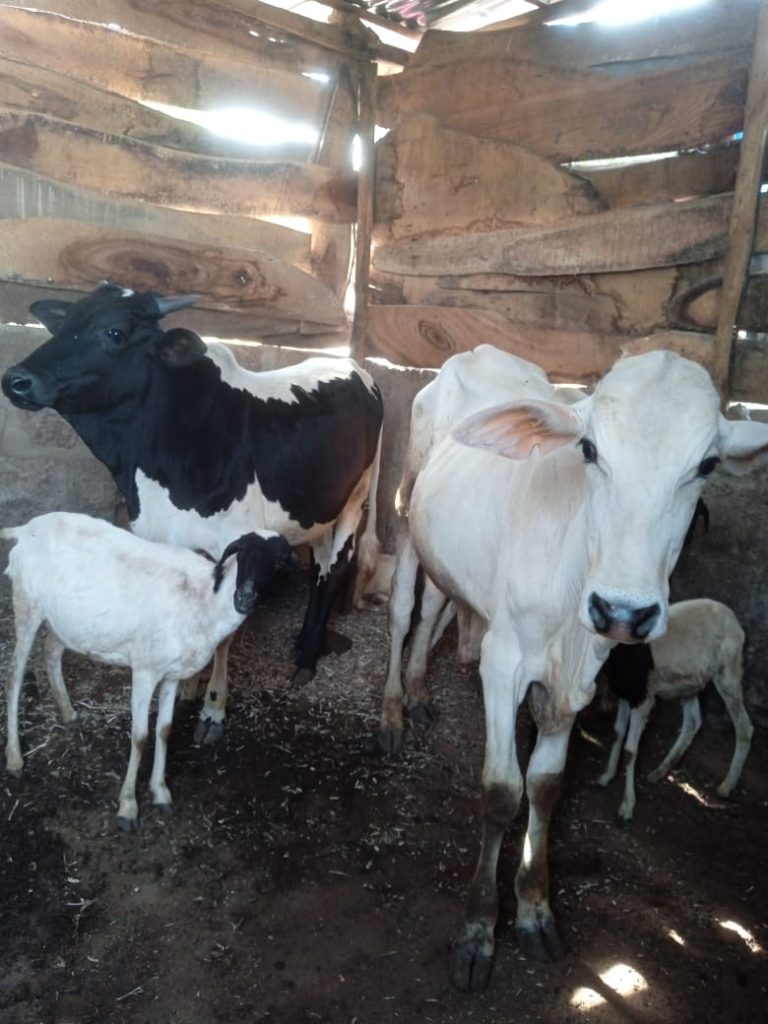In the heart of Yewa, Ogun State, Nigeria, lies the expansive Kolabass Farm, a testament to integrated farming practices which was explored by FarmingFarmersFarms in an adventurous agriculture and food security assessment. Managed by Mr. Jubril Abbas, the farm seamlessly blends the cultivation of cassava, fruits, vegetables, groundnuts, melons, and livestock, in collaboration with Ridbass Farm. This made us to explore the deepest practice of this agropreneur to uncover how he manages the animals and other food production during this dry season.

Mr. Jubril Abass.
To combat these challenges, Abass revealed some innovative and coping mechanisms while plans, according to him, are underway to expand the farm, cultivating grass specifically for the dry season, which will be cut and preserved. Additionally, he supplements cattle feed with resources from other aspects of the farm whereby caution is exercised when feeding cattle cassava peel due to its potential toxicity. “As a coping mechanism, I sold two of my largest cows during this December, marking the early dry season, as this reduces maintenance costs, and I plan to purchase new stock in February during the late dry season when cattle prices are more affordable”, explained Abass.
Cattle are generally cheaper during the dry season, considering the increased costs associated with feeding and maintaining them. This strategic buying and selling process enables Abass to navigate the challenges posed by the dry season effectively. Summarily, the journey through Kolabass Farm, as documented by FarmingFarmersFarms, reveals the intricate dance between challenges and innovative solutions in the world of cattle farming during the dry season. Abass’ integrated farming approach and forward-thinking strategies serve as an inspiration for farmers seeking sustainable solutions in the face of changing seasons and evolving agricultural landscapes.




1 Comment
Not much knowledge on cattle farmings but abbas pattern of handling it sounds cool